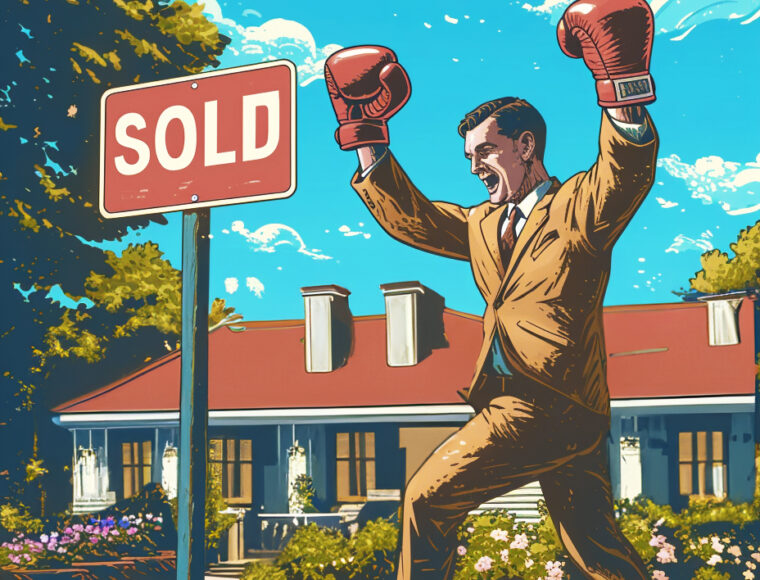Are You a Value-Added Agent?

Value-Added Agent
I’ll bet if I asked ten real estate agents, all ten would answer ‘yes’ to that question. Yet, when I ask agents how they are value-added, they say things like
- I communicate regularly with my clients
- I have a written listing presentation
- I am honest.
- I am trustworthy.
Are these ‘value-added’ attributes? Or, does the client expect these attributes and services? Are these exceptional services, or average services? I’m writing this article at the beginning of a New Year. It’s a perfect time to re-assess your professionalism and master being that ‘value-added agent.
Client Expectations are Higher than Ever
Unfortunately, too many real estate agents assume they are ‘value-added’ because they are providing the services they want to provide—the services they think the client values. However, there’s a real client out there, and the client has a different expectation. How do I know that? Because so few agents regularly survey their clients. In fact, when I’m speaking to an audience, I survey them, and find that less than 25% percent gather after-sale surveys! So, the majority of agents don’t know if the services they are providing are average or exceptional.
Why Bother Being Exceptional?
- Because you want to set yourself apart
- You want to create client loyalty
- You want to create at least 50% of your business from client referrals (the latest National Association of Realtors survey Profile of Members found that the average Real Estate Agent got only 18% of his business from referrals. That’s a hard and expensive way to run a real estate business!
- Because you want to run a more pleasant, profitable business
Four Actions Value-Added Agents Take
How can you identify value-added agents? By their actions. Here are 4 actions I believe shows agents are above just ‘average’. The principle here is
Watch the actions, not the words.
If I were a manager, or a seller or buyer, and I wanted to find a value-added agent, here’s what I would look for:
- Has a database and populates it
This agent is committed long-term to his clients and to his business. He uses a contact management program (CRM) to manage ‘leads’, so none are lost—and clients do not feel neglected. After all, it takes much longer today to convert a ‘lead’ to a sale than it used to take. Actively using and maintaining a CRM means the agent is committed to forming long-term professional relationships over time.
Other demonstrable actions concerning the agent’s CRM are:
- Has a rapid-response method to deal with Internet inquiries and other inquiries via e-mail. (The average client expects a response within 8 hours—but a recent survey showed the average agent responded in 50 hours!).
- Has a method to follow up on all leads until they ‘buy or die’. As a client, that means I won’t get lost. As a seller, it means my agent will follow up with all leads and give it 100% to sell my home.
- Invests in the technology and follow-up pros have
This agent makes every decision based on his vision of his career at least 3 to 5 years in the future. For example, instead of selling someone a house anywhere just to get a sale, my value-added agent sells only in an area me defines as his ‘target area’. That way, he’ll get known, and can build on his reputation.
The value-added agent has the ‘guts’ to turn down business! Because he cares more about the well-being of the client than getting one grimy commission check, he learns to ‘tell the truth attractively’, and works harder to retain the client than to make one commission.
- Works for referrals, not just sales
I said the agent learns to ‘tell the truth attractively’, even if the buyer or seller may not want to hear it. For example, if it’s in the best interests of the seller to list his home at a lower price, the value-added agent has the strategies and the statistics to prove that the seller will be not well served by pricing higher.
And, this value-added agent has the intestinal fortitude to walk away if he knows the home will not sell at the client’s desired price (but doesn’t have to many times because he creates a stellar reputation amongst his clientele).
- Keeps the buyers and sellers’ best interests in mind
Our value-added agent makes every decision to grow trust, not just to make a fast buck. For example, the agent sits down with a prospective couple, and, finding out they can’t purchase right away, creates a plan with them to save for their down payment. Then, she keeps in touch over a period of months, offering helpful information and market updates.
In other words, this agent practices seller or buyer agency representation, not ‘agent agency’!
Adding those Client Benefits to your Dialogue
Of course, it’s not enough to actually take these actions. You need to explain to the client why these actions are in the client’s best interests, and how you stand apart from most agents by employing them. Why? Because your client won’t know you run your business so professionally. And, the client probably doesn’t know most agents don’t run their businesses this way!
Tip: Always show your clients, don’t just tell them. You do have a Professional Portfolio and evidence on your website, don’t you?
Put Yourself to the Test
How many of these actions do you exhibit? What do you want to work on to become a true ‘value-added’ agent?
Tip: Managers, give your agents a ‘test’ on these 4 points. How many pass?
Carla Cross, CRB, MA, President of Carla Cross Seminars, Inc., and Carla Cross Coaching, is an international speaker specializing in real estate management and business planning for all real estate professionals. Her seven internationally published books, including Up and Running in 30 Days, and 20 agent and management programs have helped thousands of real estate professionals to greater productivity and profitability. Reach Carla at 425-392-6914 or www.carlacross.com.




